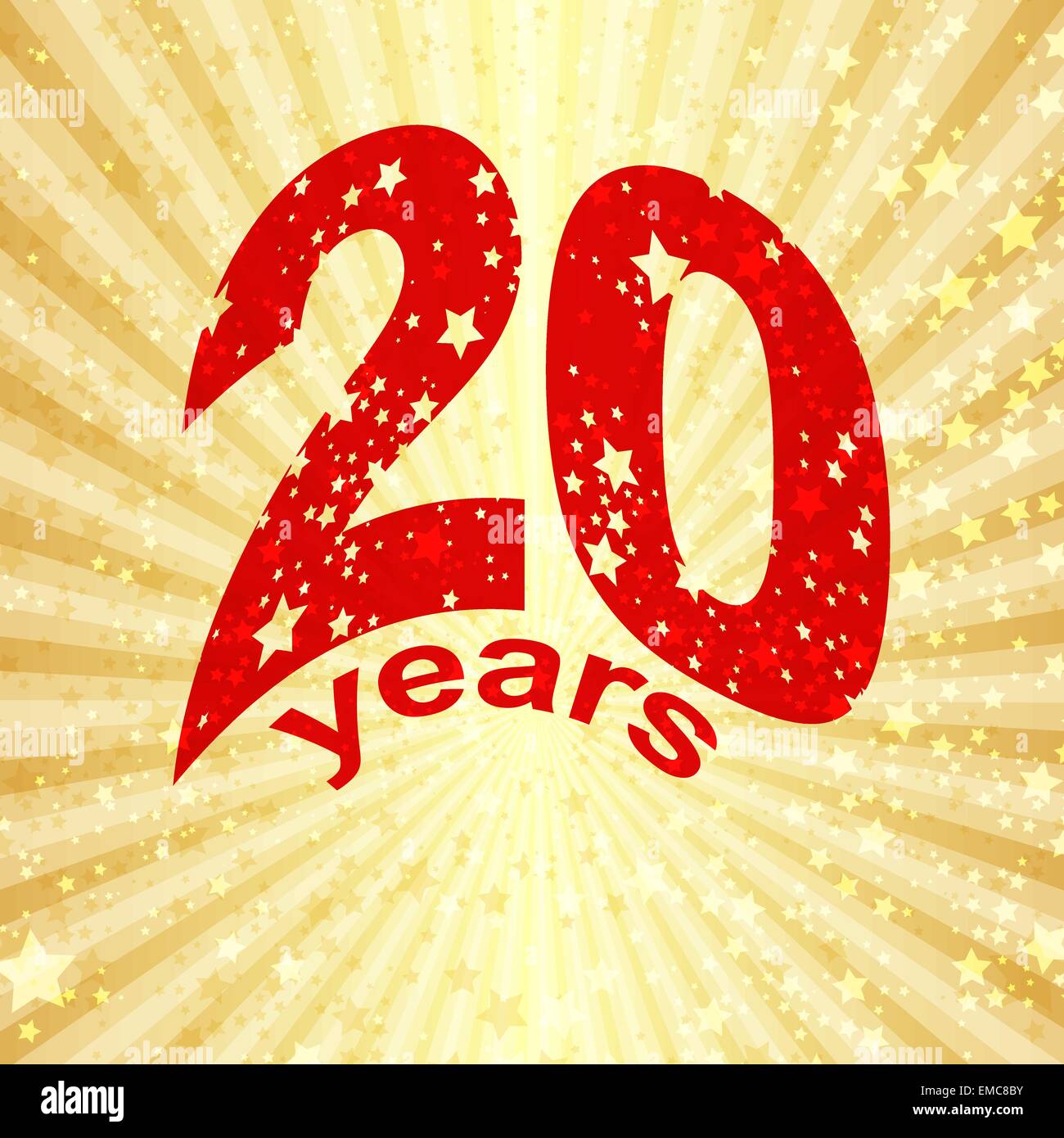Unpacking The 20th Degree: Meanings Across Time And Thought
Have you ever stopped to think about how a simple phrase, like "20th degree," can hold so many different ideas? It’s pretty fascinating, you know, how words shift their meaning depending on where and when you hear them. We often talk about the "20th century," but the "20th degree" itself, well, that's a whole different kind of exploration. It pops up in some truly unexpected spots, from ancient practices to personal cosmic maps, showing just how rich our language can be.
It seems that, as a matter of fact, this particular phrase carries weight in areas you might not even consider at first glance. We’re going to take a look at how this seemingly straightforward numerical concept actually opens doors to history, symbolism, and even personal insight. You might find it surprising, sort of, how much depth there is.
So, get ready to explore the various ways the "20th degree" makes its appearance, whether it's tied to historical moments, deep philosophical ideas, or even what your birth chart might suggest about you. It's a journey, pretty much, through different ways of understanding the world around us.
Table of Contents
- Historical and Linguistic Views of the Century
- Symbolism and Fraternity: A Deeper Look
- Astrological Significance: What Your Chart Might Reveal
- Time, Dates, and How We Interpret Them
- Mathematical Connections: Degrees in Numbers
- Frequently Asked Questions About the 20th Degree
- Wrapping Things Up
Historical and Linguistic Views of the Century
When we talk about the "20th century," it brings up some interesting points about how we write and understand time periods. You know, like, should the "th" part be in superscript? I remember, actually, being taught in history classes to abbreviate century by writing a large capital 'C' followed by the ordinal number. This kind of detail, really, shows how language evolves and how different style guides offer different advice.
Those of us who grew up in the middle of the 20th century, for instance, learned a couple of phrases from our parents, who were mostly from that same era. The "turn of the century," you know, was a phrase that pretty much described the period around 1900. It’s fascinating how these little linguistic habits get passed down, sort of, from one generation to the next.
It turns out, as a matter of fact, that different style guides don't always agree on how to handle references to centuries, decades, and other time periods. This divergence, you see, means there isn't one single "right" way to do it. It’s a reflection of how fluid language can be, even for something as seemingly straightforward as dates.
Symbolism and Fraternity: A Deeper Look
The phrase "20th degree" takes on a very specific meaning in certain fraternal contexts. It's pretty clear, for example, that in some traditions, the 20th degree shows fraternity and equality. This isn't just about numbers; it's about the principles and values that a group upholds, you know, at that particular level of their system.
Within this particular degree, there’s a story about Benedict Arnold, where he seeks forgiveness for his act of betrayal. This narrative, honestly, is quite powerful. It's a way for people to think about big ideas like treason, loyalty, and the possibility of redemption. It gives a historical figure a place in a symbolic teaching, which is pretty interesting.
We also hear that, in this context, people learn to grasp concepts like deity, the natural forces around us, and the difference between good and evil. Treason, you see, is described as a crime that masonry considers very seriously. These are deep philosophical lessons, actually, that go beyond just the historical event itself, making the "20th degree" a place of significant moral instruction.
Astrological Significance: What Your Chart Might Reveal
Moving to a completely different area, the "20th degree" also has a special place in astrology. In this field, degrees are measurements within the zodiac, and each one can carry its own unique energy or meaning. So, a planet or point placed at the 20th degree in your birth chart, you know, might hint at something rather curious about your character.
For instance, having a placement at the 20th degree in a particular part of your birth chart could suggest a very distinctive quality about you. It might, in a way, influence how you present yourself to the world or how others perceive you. It’s a subtle but significant detail, really, that astrologers look at to gain deeper insights into a person's makeup.
There's even talk of specific degrees, like "20 degrees Aries," carrying particular astrological interpretations. These specific placements, you know, are thought to color the influence of the planet or sign involved. It's all about the precise positioning, essentially, that can reveal unique aspects of an individual's journey or personality. If you want to learn more about specific astrological degrees, you can often find detailed explanations on sites like Astro.com, which is a pretty good resource.
Time, Dates, and How We Interpret Them
Beyond the symbolic or the cosmic, the "20th degree" can simply refer to a specific point in time, like a date. For example, a reference to "Saturday, 20th December 2014" is just a straightforward calendar date. It shows, actually, how this numerical concept grounds itself in our daily lives and schedules.
The way we talk about time, like being "out of office until Thursday," can sometimes be a bit confusing, can't it? Does that mean the sender is back on Thursday, or still out and only back on Friday? This kind of phrasing, you know, highlights how important clarity is when setting expectations about time. It’s not always as simple as it seems, really.
And then there's the word "midnight," which is often interpreted incorrectly. It's written as 12 AM, which, in a way, suggests it's in the morning. This small detail, you see, can cause a lot of misunderstandings about when a day truly begins or ends. It just goes to show how much nuance there is in our everyday language, even when we're talking about basic time.
Mathematical Connections: Degrees in Numbers
In mathematics, the word "degree" takes on a very different, yet equally fundamental, meaning. We talk about "fonctions affines" and "équations et inéquations du 1er degré." While this isn't directly about the "20th degree," it establishes the concept of a "degree" as a measure of the highest exponent of a variable in a polynomial, or the order of a mathematical relationship. It's a foundational idea, basically, in algebra.
Just like numbers themselves, equations are some of the very first mathematical results we learn about. Understanding the "degree" of an equation is crucial for solving it and for grasping its properties. It's a way, you know, to classify different types of mathematical problems. So, while "20th degree" might not be a common mathematical term, the concept of "degree" is absolutely central to the field.
Even the idea of "factoriser," which means transforming an addition or subtraction into a multiplication, ties into how we manipulate mathematical expressions. This process, actually, often depends on understanding the degrees of the terms involved. It's all connected, you see, in the logical structure of mathematics, making the idea of a "degree" a really important building block.
Frequently Asked Questions About the 20th Degree
What does the 20th degree signify in a fraternal context?
In certain fraternal organizations, the 20th degree, as a matter of fact, represents principles of fraternity and equality. It's a level where members often learn deeper philosophical lessons, sometimes through allegories involving historical figures like Benedict Arnold, who seeks pardon for his treason within this degree's narrative. It's about understanding complex moral and ethical concepts, you know, within a structured system.
How is the 20th degree important in astrology?
In astrology, the "20th degree" refers to a specific point within a zodiac sign. When a planet or a significant point in your birth chart falls at the 20th degree of a particular sign, it's believed to give that placement a unique quality or emphasis. It can, in a way, highlight a curious aspect of your personality or how you appear to others. For instance, "20 degrees Aries" would have a specific interpretation, adding a layer of detail to astrological readings, which is pretty cool.
Is "20th degree" related to "20th century"?
While "20th degree" and "20th century" both use the ordinal "20th," they refer to very different concepts. "20th century" points to a historical period (1901-2000). "20th degree," however, has specific meanings in contexts like fraternal orders, where it represents a level or teaching, or in astrology, where it marks a precise point in a zodiac sign. So, while they share a number, their meanings are distinct, really, and depend entirely on the context they're used in.
Wrapping Things Up
It’s quite something, isn't it, how a simple phrase like "20th degree" can mean so many different things? From the subtle rules of language about writing centuries to the deep symbolic teachings in fraternal groups, and even to the precise calculations in astrology, this concept pops up in unexpected places. It just goes to show, you know, how rich and varied our human systems of understanding and communication truly are.
Thinking about these different interpretations, it becomes clear that context is everything. What might seem like a straightforward number, actually, opens up entirely new avenues of thought depending on where you encounter it. It's a reminder that words and numbers often carry layers of meaning, waiting for us to uncover them, which is pretty fascinating.
So, the next time you come across the "20th degree," you might just pause and consider which of its many meanings is at play. It’s a little mental exercise, really, that can deepen your appreciation for how we make sense of the world. To learn more about various historical periods and their linguistic nuances, you can explore other articles on our site, and perhaps even delve into the fascinating world of symbolic numbers. It's all part of a bigger picture, you know, that we're always learning about.

20th Vector Art, Icons, and Graphics for Free Download

Page 11 | 20th Images - Free Download on Freepik

20th Stock Vector Images - Alamy